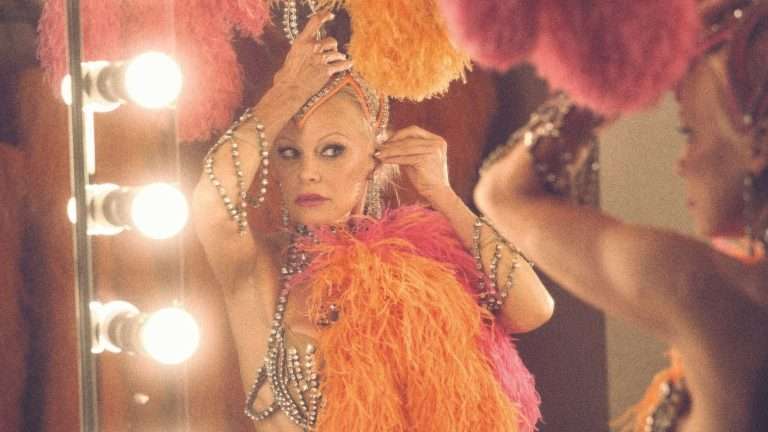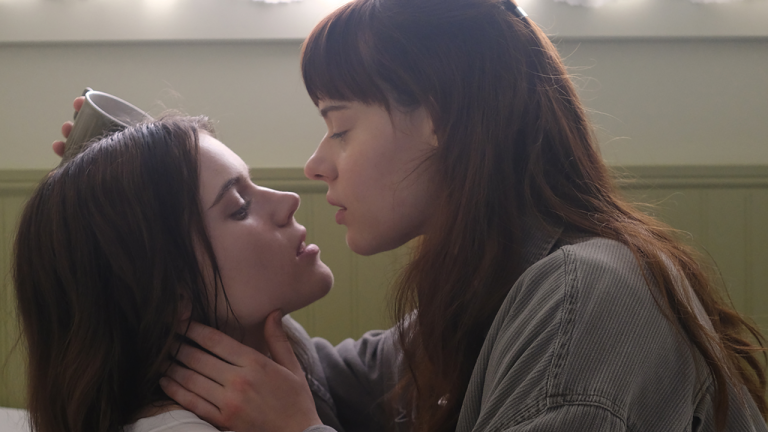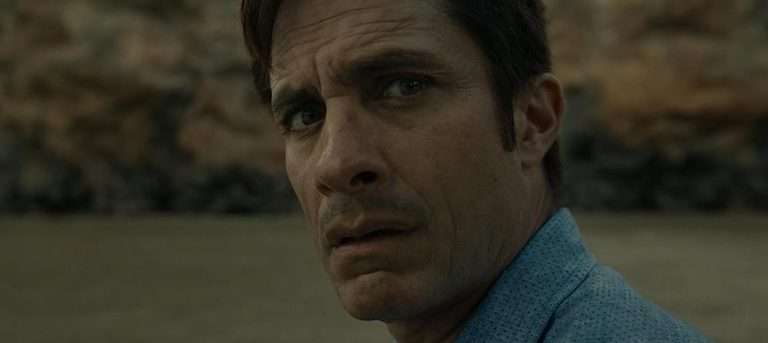Sudabeh Mortezai’s Europa (2023) is torn by a paradox. There is a jarring dissonance in how it approaches information and how to dole it out to the viewer. The narrative tracks the methods of corporate globalization, masking itself as munificence for the people it seeks to root out in order to get that precious swathe of land. Our entry point into the messy negotiations is through Beate (Lilith Stangenberg), the German representative of the eponymous company that is striving to break into every inch of the Albanian sectors.
Beginning and ending with a jolt, the film is essentially a slow burn, delving into the slow, gradual art of persuasion Beate has to excel at and cool-headedly defend her company’s surging investment. Europa is wedging itself into a makeover of Albania, pushing itself into university spaces by funding scholarships and taking over land to build new projects.
Beate talks in platitudes about Europa recognizing and capitalizing on Albania’s need for reconstruction and revitalization. We are kept mostly in the dark about the nature of the projects, but a late scene in the film hints at much darker aspects than reconstruction. The ambiguity with which Mortezai builds the company’s investments is thrilling, but at the same time, her screenplay can’t seem to resist underlining the deceit artfully wrapped within Beate’s verbal strategies through a bunch of banal, explicatory dialogues like “communication is manipulation.”
Beate can never let her façade slip and let the conniving flash through. She projects herself as an exceedingly patient, considerate individual who has only the people’s best interests and will ensure them a generous settlement. This is her first time in Albania with a job that requires her to stave people off their traditional, customary land holdings and livelihoods passed down through generations. It is appropriation on a massive scale, a project she has to cover up by offering better relocation with facilities than stubbornly holding onto their habitation that she calls a ghost town. Beate has to constantly perform subterfuge and conceal it.
She has to appear sensitively engaged, respectful, and curious and disguise any layer of inherent reserve or distaste around the Bektashi community of the valley Europa wants to possess. Beate promptly asks for an anti-bacterial gel to wipe clean her hands after she gets out of a local dwelling. She can barely control and curb her recoiling when the residents insist on feeding her their local delicacies, especially the traditional drink of Raki.
Throughout the course of the film, we watch Beate sharpening her smarts in how to extract what she wants from these people while performing effortless geniality with practiced ease. The English dialogues Stangenberg has to mouth do sound stiff occasionally, but she gets the tightly guarded, cool, dispassionate persona of Beate beneath her ways of smooth-talking the residents into accepting her offer.
Mortezai is interested in examining the garb of corporate empowerment, the compromises, and the trade-offs it entails. Beate has her eyes on a particular stretch of land owned by a beekeeper, whose daughter is at the college Europa is promising a scholarship. When Beate realizes she cannot penetrate the father’s beliefs on his land and ideas of a good life that firmly hinges on their Bektashi religious tenets, she gets the daughter to influence him. The rationality Beate provides in this shrewd negotiation between father and daughter is perhaps the film’s most potent, stinging critique.
But when the film goes over to the family, it is at its weakest and flabbiest, bundled under visuals of the bucolic, gathering sheep and tending to the bees that don’t gather any specificity and come off as tiringly pedantic in its approach to the religious principles undergirding the community’s existence and way of life. This impedes Europa from losing a lot of incisiveness and nuance, reducing the potential for the film to truly measure the costs of what it is critiquing. So, when the anger of the betrayal does erupt, it feels strangely weightless.




![The Bold, the Corrupt, and the Beautiful [2018]: ‘NYAFF’ Review](https://79468c92.delivery.rocketcdn.me/wp-content/uploads/2018/06/The_Bold_the-Corrupt_and_the-Beautiful_NYAFF_HOF_3-768x432.jpg)
![Her Smell [2019] Review – A Devilishly Infuriating Punk-Rock Odyssey](https://79468c92.delivery.rocketcdn.me/wp-content/uploads/2019/06/Her-Smell-Elisabeth-Moss-768x318.jpg)


